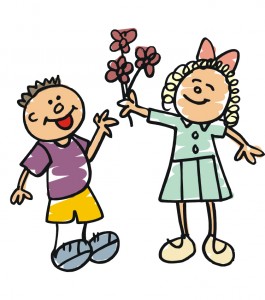 At the Cognitive Behavior Therapy Center of Silicon Valley, we offer cognitive behavior therapy (CBT) for children with Generalized Anxiety and Excessive Worry. Our approach with children with generalized anxiety and worry is practical, goal-oriented, compassionate, and scientifically-based while focusing on your child’s individual needs. If you think your child may be experiencing excessive anxiety and worry, you can learn more about generalized anxiety disorder and our treatment approach below.
At the Cognitive Behavior Therapy Center of Silicon Valley, we offer cognitive behavior therapy (CBT) for children with Generalized Anxiety and Excessive Worry. Our approach with children with generalized anxiety and worry is practical, goal-oriented, compassionate, and scientifically-based while focusing on your child’s individual needs. If you think your child may be experiencing excessive anxiety and worry, you can learn more about generalized anxiety disorder and our treatment approach below.
What is Generalized Anxiety and Worry in Children?
Does your child worry about many different things? Are you at a loss for how to calm your child’s worries? If your child has generalized anxiety disorder, he or she will worry excessively about a variety of things such as grades, family issues, health issues, safety, friendships, and/or performance in sports. Your child may tend to be very hard on him/herself and strive for perfection. He or she may also seek constant approval or reassurance from you and others.
Symptoms of Anxiety and Worry in Children
- Worrying and “what if” thinking about a number of live events and activities.
- Difficulty with uncertainty or ambiguity.
- Difficulty concentrating.
- Being easily irritated and annoyed.
- Difficulty falling or staying asleep.
- Changes in functioning including dropping grades and increased conflict with family and friends.
Cognitive Behavioral Model of Anxiety and Worry in Children
For most children with generalized anxiety, worry is used to distract their minds from negative thoughts and emotions, including feelings of sadness and anger, fears, and disappointments. Some children may also believe that worrying prevents or prepares them for negative events or setbacks. Other children struggle with uncertainty and may cope with ambiguous or indefinite situations by worrying, repeatedly asking questions, or seeking reassurance.
Cognitive Behavioral Therapy for Children with Anxiety and Worry
Your therapist will work collaboratively with you and your child to modify the beliefs and behaviors that maintain your child’s anxiety and excessive worry. Your child will learn about the nature of anxiety and how it is influenced by thoughts, physical feelings, and actions. After identifying the thoughts and behaviors that maintain your child’s anxiety and identifying “worry patterns”, the therapist will teach new skills for dealing with excessive worry and coping with anxious feelings. These skills with include calming strategies (e.g. diaphragmatic breathing, progressive muscle relaxation, guided imagery) and cognitive interventions aimed at replacing fearful “what if” thoughts with positive, constructive and realistic thoughts. You will also learn constructive ways of responding to your child’s fears (e.g. rewarding courageous behaviors, empathically ignoring avoidance behaviors). The next component of treatment is for the your child to face his or her fears, in session and in the real world, and practice their new ways of responding to anxiety. With practice and experience facing their worries, most children find themselves worrying less and being more able to cope with stress and uncertainty.
Common Goals of Cognitive Behavior Therapy Children with Anxiety/Worry
- Reduce the child’s overall level of anxiety and worrying.
- Build coping skills for dealing with anxiety and other normal negative emotions and stressful life events.
- Improve functioning at school and with family and friends.
How Get Help for Your Child with Generalized and Worry
The Cognitive Behavior Therapy Center of Silicon Valley (San Jose/California) specializes in Child Anxiety and Worry therapy and counseling. We serve the communities of San Jose, Saratoga, Mountain View, Santa Clara, Sunnyvale, Los Gatos, Los Altos, Palo Alto, Cupertino and Campbell, CA as well as the state of California. Click to send an email for more information on how we can help you manage your child’s generalized anxiety and worry.
